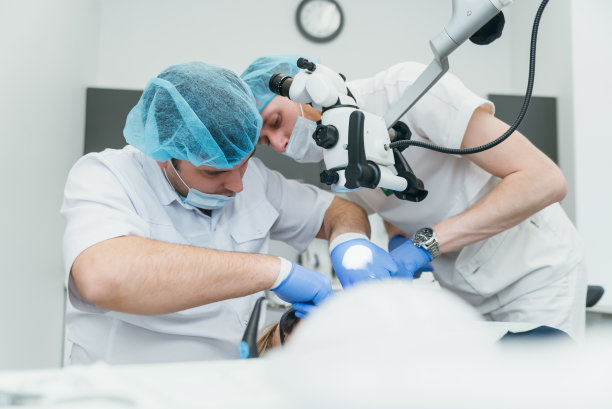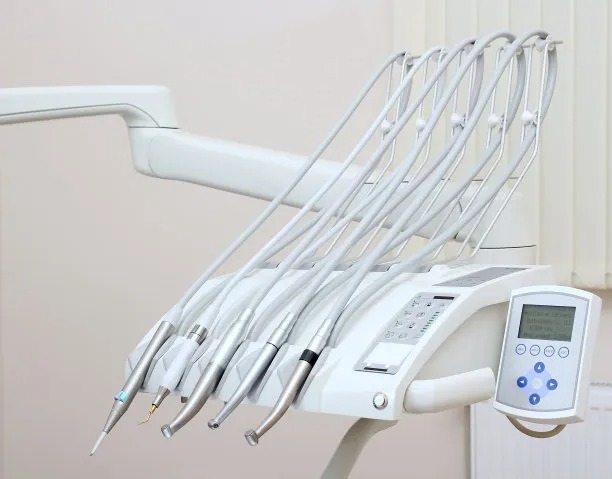Summary: Ensuring optimal oral health and recovery post-dental fillings requires careful preparation and mindful aftercare. This article discusses essential guidelines to follow before and after receiving dental fillings, focusing on practices that enhance recovery and maintain oral hygiene. From understanding the procedure and its necessity to managing post-treatment discomfort and dietary choices, adhering to these steps will ensure a smooth recovery process. By following these tips, individuals can enjoy lasting dental health and minimize the risk of further issues.
1. Understand the Filling Process and Its Necessity

Before getting dental fillings, its crucial to understand why they are necessary. Dental fillings are applied to restore teeth that have been affected by decay, damage, or wear. Knowing this informs patients about the importance of timely intervention to prevent further complications. Regular dental appointments are essential for early detection of issues that may require fillings.
Additionally, familiarize yourself with the types of fillings available, such as amalgam, composite, or porcelain. Each type has distinct properties, costs, and appearances. Discussing these options with your dentist can help you make an informed decision that best suits your dental needs and aesthetic preferences.
Lastly, preparing mentally for the procedure can alleviate anxiety. Understanding what to expect during the filling process, including the anesthesia and instrumentation involved, can help demystify the experience, leading to a more relaxed visit to the dentist.
2. Prepare for Your Dental Visit Effectively
Preparation for your dental appointment also includes ensuring you have a reliable form of transportation if you’re receiving sedation. Some fillings may require local anesthesia, making it unsafe to drive afterward. Planning ahead will eliminate unnecessary stress on the day of your appointment.
It’s advisable to discuss any medications or health conditions with your dentist beforehand. Certain medications might interact with anesthesia or healing post-treatment. Being honest about your medical history ensures the dentist can tailor the treatment to your specific needs, enhancing safety and efficacy.
Also, consider bringing a friend or family member to your appointment for emotional support. Having someone to talk to can make the experience less intimidating and can help you relax both before and after the procedure. Its beneficial to arrive at the dental office well-prepared and informed.
3. Manage Discomfort After Receiving Fillings
Post-treatment discomfort is a common concern following dental fillings. After the procedure, it is crucial to follow your dentists aftercare instructions, which may include taking prescribed pain management medications. Over-the-counter pain relievers can also help ease any discomfort you might experience.
You may notice sensitivity to hot and cold temperatures after the fillings are applied. This sensitivity usually subsides over time, but its essential to pay attention to your body. If the discomfort persists longer than expected, reaching out to your dentist is advisable to rule out potential complications.
Additionally, maintaining oral hygiene is critical after receiving fillings. While it might be tempting to avoid brushing the treated area, proper hygiene will aid in recovery. Use a soft-bristled toothbrush and fluoride toothpaste to gently clean around the fillings, ensuring you avoid plaque buildup and further dental issues.
4. Follow Dietary Guidelines for Faster Recovery
The types of food you consume post-treatment can significantly impact your healing process. Its wise to avoid extremely hot, cold, or hard foods for at least 24 hours after getting fillings. These items can cause discomfort and may damage new fillings, especially if they’re still settling into place.
Soft foods are your best friends during recovery. Foods like yogurt, applesauce, and mashed potatoes can provide the nutrients you need while being gentle on your teeth. As you feel more comfortable, you can gradually reintroduce a normal diet, paying attention to how your body reacts.
Staying hydrated is equally important. Drinking water helps in the recovery process and assists in the prevention of dry mouth, which can lead to a higher risk of cavities. Keeping your mouth hydrated will also aid in overall oral health and recovery.
Summary:
In summary, preparing for dental fillings is as important as post-care management. Knowledge about the filling process, effective preparation, managing discomfort, and following dietary guidelines can greatly enhance recovery and improve oral health. By taking these steps seriously, patients can look forward to a brighter, healthier smile.
This article is compiled by Vickong Dental and the content is for reference only.
Vickong Dental
Vickong Dental is a large medical group established in Hong Kong in 2008 by professors from well-known medical universities in Guangdong and Hong Kong, as well as medical doctors from key national '985' universities (including Master's supervisors and senior professors). The chain of branches brings together expert dentists with PhDs and Master's degrees from Hong Kong and Mainland China, committed to providing high-quality dental treatment.
"Vickong Dental Practices the University Motto of 'Healing and Serving Society,' with a Stable Operation for Sixteen Years. It Has Been honored with Hong Kong Enterprise Leaders's Choice,' and is a Global Trusted Implant Center for the Nobel Implant System. Recommended by Hong Kong Metro Broadcast and Guangdong Television, it Serves Customers from Over Thirty Countries and Regions, Gaining the Trust and Favor of Citizens from the Guangdong-Hong Kong-Macau Greater Bay Area and Surrounding Cities.

Thousands of customers' unanimous praise
The most recognized and highly recommended dental service by customers in the Guangdong-Hong Kong-Macau Greater Bay Area
We Ensure You Receive Detailed Care and Attention Here
Hong Kong standards, Shenzhen prices, Your Trusted English-speaking dentists

Vickong Dental Medical-Grade Instrument Disinfection Process
Vickong Dental Medical-Grade Instrument Disinfection Process

Vickong Dental Chain: A Warm and Comfortable Environment for Treatment






Appointment Hours

Q&A
Why choose Vickong Dental?
Vickong Dental practices the university motto 「Medicine to Benefit Society」, with each branch bringing together highly qualified dentists with doctoral and master’s degrees from Hong Kong and the Mainland, and has maintained seventeen years of steady operation。Recipient of 「2024 Hong Kong Enterprise Leaders Brand」, 「2025 Hong Kong Enterprise Leaders Brand」, a Nobel Biocare Global Trusted Implant Center, and a brand recommended by Metro Radio Hong Kong and Guangdong TV。
To date, we have served customers from more than thirty countries and regions,earning exceptionally high word-of-mouth recognition and trusted recommendations from residents across the Guangdong-Hong Kong-Macao Greater Bay Area and surrounding cities
We have eight major branches in Zhuhai、Shenzhen,and a consultation and service assurance center in Hong Kong,so you can book a free consultation at any time for any questions,which is very reassuring.
If I do not accept the quotation after the CT scan, will I be charged??
No! As long as the actual treatment has not started, you will not be charged any fees.
Will there be any additional charges during the treatment process?
No, there won’t be any additional charges. Before treatment begins, we will clearly explain the treatment plan and its corresponding fees. Only after the patient agrees and signs the consent form will we proceed with the dental service.
Can I pay in Hong Kong dollars?
Yes. Vickong Dental accepts payment in Hong Kong dollars. The amount will be converted based on the exchange rate of the day, and the applicable rate will be clearly communicated to you in advance.
Can I reschedule my appointment at any time?
Yes. Please contact us via **WeChat** or **WhatsApp** as early as possible, providing your original appointment time and details, along with your preferred new date and time slot for rescheduling.













